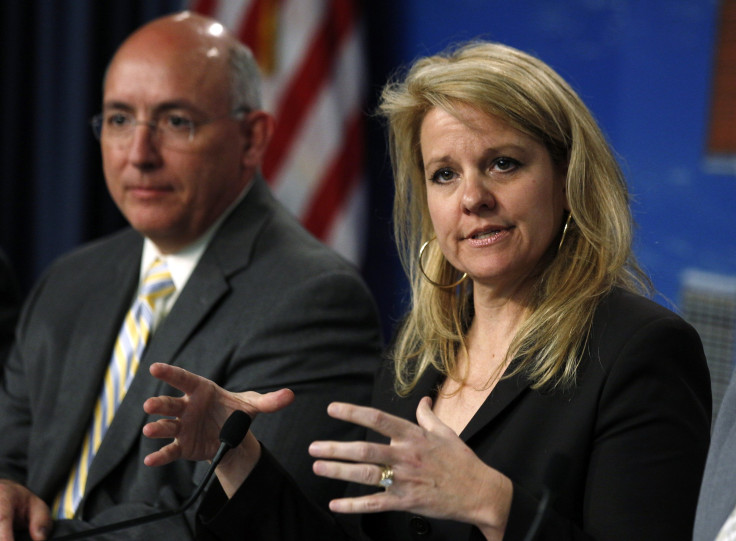SpaceX 2100: President Shotwell Says Company Will Dominate Space Cargo Services, Put Humans On Mars In 10 Years
Gwynne Shotwell wants her company to become the master of the solar system. The president and chief operating officer of Space Exploration Technologies Corp. (SpaceX) said recently her spunky Hawthorne, California, aerospace startup will become the “most widely used space transport company in the -- let's call it the solar system” -- by 2100.

It might seem like an audacious boast to make predictions into a future most people reading this won’t be around to witness, but this brassiness is what has made Shotwell, SpaceX and the company’s billionaire founder Elon Musk so popular among people who believe space colonies will happen in their lifetimes.
Indeed, it’s difficult to find anyone who isn’t rooting for SpaceX to be allowed to bid on U.S. military contracts that have for decades been granted exclusively to a joint venture between the country’s aerospace goliaths, The Boeing Co. (NYSE:BA) and Lockheed Martin Corp. (NYSE:LMT), who partly rely on a politically unstable supply of Russian rocket technology that SpaceX says it can replace. A day after Musk’s appearance on Comedy Central’s “The Colbert Report” where he talked about SpaceX’s experimental Falcon 9 Reusable (F9R) rocket, Shotwell told American Public Media’s “Marketplace” on Friday that by 2024 her company will be colonizing Mars, widely considered the most likely location for humanity’s first interplanetary foray.
The key to any planet hopping is reusable rocket technology. Unlike the six manned missions to the moon the U.S. conducted from 1969 to 1972, a return trip from Mars would require the same rocket that delivered people and payloads to the red planet for the return trip. Without vertical takeoff and landing rocket, traveling to Mars is a one-way ticket.
Which is where SpaceX’s says it has the head start in the industry with its Falcon 9 Reuseable, or F9R, equipped with a set of landing legs that would allow the rocket to be used more than once. On July 14, SpaceX conducted its second test of a controlled descent rocket which successfully delivered six Orbcomm Inc. (NASDAQ:ORBC) satellites into orbit. Though the vehicle was lost into the Atlantic Ocean as planned, it managed to penetrate the upper atmosphere at hypersonic speed, release the second stage payload into space, re-enter the atmosphere, deploy its landing legs and touched down gently on the surface of the ocean before sinking.
This was the first successful use of the reusable rocket technology after an April test of the F9R in which a massive rocket was launched 250 meters into the air before it hovered and descended slowly back onto the platform. Later this year, SpaceX is planning to launch another F9R and attempt to land it on a floating barge.
Shotwell, 50, a mathematician and engineer, shares Musk’s grand visions for space colonization within the lifetimes of most people reading this.
“This is going to sound strange,” she told Marketplace, “but from my perspective it’s risk management to ensure that humans can go somewhere else if there is a huge disaster on Earth.” Earth-destroying disasters aside, one thing is certain: Shotwell and Musk want SpaceX to be the first to set up a neighborhood on Mars.
© Copyright IBTimes 2024. All rights reserved.






















